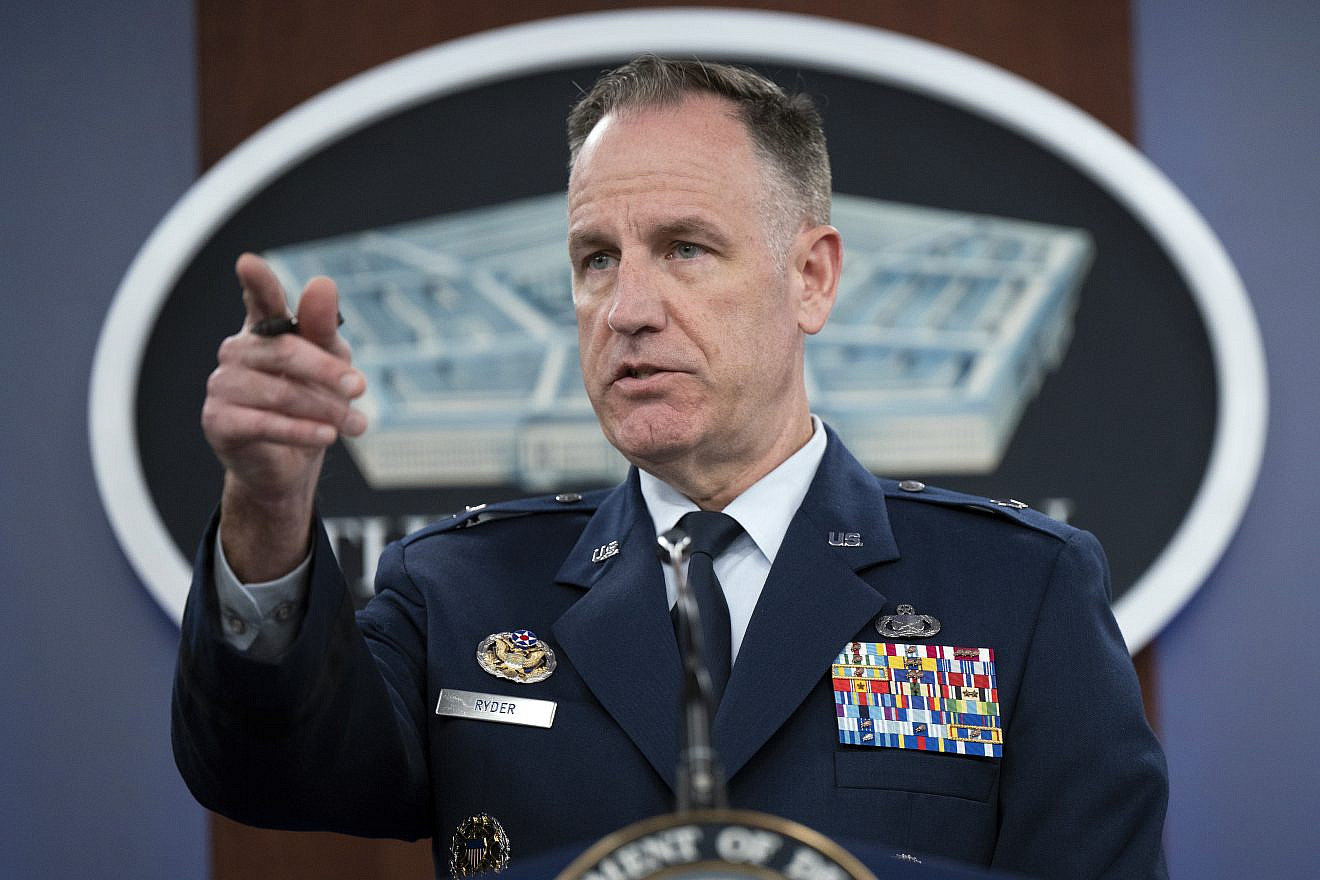Air Force Maj. Gen. Pat Ryder, the U.S. Defense Department press secretary, twice dodged an Associated Press reporter’s questions at the department’s Feb. 26 press briefing about whether Aaron Bushnell’s self-immolation protest outside the Israeli embassy in Washington, D.C., reflects broader views within the military.
“Yesterday, an active duty service member set himself on fire in front of the Israeli embassy in protest of U.S. support for Israel’s operations in Gaza. Has the secretary been briefed on Airman Bushnell?” asked Tara Copp, the AP Pentagon reporter. “Is he concerned that maybe this airman’s actions may indicate that there’s a bigger issue within the military as far as U.S. support for this ongoing operation?”
Ryder said that Lloyd Austin, the U.S. defense secretary, “is following this situation.” He added that the U.S. Air Force confirmed the death and is providing additional information to the airman’s relatives.
“It certainly is a tragic event,” he said. “We do extend our condolences to the airman’s family.”
He referred the reporter to the D.C. Metropolitan Police Department, which “has the lead for responding to questions about that incident.”
Copp pressed on her original question. “So is the secretary concerned that this might indicate that there is a deeper issue, maybe U.S. military personnel are being concerned about how weapons and support for Israel is being used on civilians in Gaza?”
Ryder again dodged the question, pivoting to the Pentagon’s support for the Jewish state.
“Well, look, from a Department of Defense standpoint, since Hamas’s brutal attacks on Oct. 7, we’ve been focused on the four key areas that the secretary set out from the onset,” he said. “That’s protecting U.S. forces and citizens in the region, supporting Israel’s inherent right to defend itself from terrorist attacks, working closely with Israel to support and secure the release of hostages from Hamas, and ensuring that the crisis—the conflict between Hamas and Israel doesn’t escalate into a broader regional conflict.”
Those objectives still inform the Pentagon’s approach to the region.
“As we’ve talked about before, while our support for Israel’s inherent right to defend itself is ironclad, we’ve also continued to actively communicate our expectations that Israel take civilian safety and humanitarian assistance into account into their operations,” Ryder added.
“You see that incorporated into every conversation the secretary has with his counterpart in Israel, as well as other U.S. officials,” he added. “We expect them to continue to adhere to the law of armed conflict and international humanitarian law. We’ll continue to do that.”


























